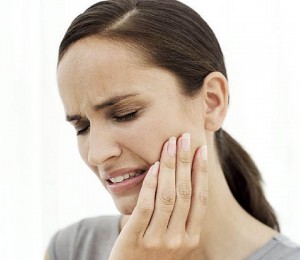Toothaches are usually a result of tooth decay in the mouth. The sugar and starch precipitates in your mouth provide a suitable environment for the bacteria to live in, allowing them to proliferate. This causes the bacteria to ‘stick’ to the enamel of the teeth forming stubborn plaques that are hard to remove, if not dealt with regularly.
The acids produced by the bacteria, penetrate through the enamel of your teeth giving rise to cavities. The inevitable sign of decay is the sharp sensation you feel when you eat something sweet, hot or cold. If you have a toothache, visit your dentist so that he can take care of the cavities to prevent further damage to your teeth. Toothaches may also be caused by injuries or trauma during accidents, falls or assaults.

Symptoms
- Pain
- High sensitivity to hot or cold foods
- Bleeding of the gums
- Swelling
Treatment
If signs and symptoms of tooth decay occur, consider the following self-care treatments until you visit the dentist:
- Wash your mouth with warm water.
- Use dental floss so that you can remove any food debris stuck between your teeth.
- To reduce sharp sensations of pain, take over-the-counter medications that relieve pain.
- You may also apply an over-the-counter topical antibiotic cream or gel containing benzocaine on the affected tooth and gums so that you can alleviate the pain for the time being. However, take caution while using medications containing benzocaine as it can risk to fatal diseases that cut that the oxygen supply in the blood. Therefore, doctors recommend not using benzocaine in young children under 2 years of age without consulting a doctor, as this age group is more susceptible to diseases.
- Do not use more than the suggested dosage of benzocaine.
- You may also use the oil of cloves on the irritated region of your mouth.
- Do not place aspirin or over-the-counter pain relievers directly on the affected region, as it can burn the gums.
- Visit a dentist, if the following complications occur:
- If the pain is prolonged for more than 2 days.
- If signs of infections such as pain while chewing, redness of the gums, swelling or unpleasant taste discharge take place.
- If breathing difficulties and difficulties in swallowing take place.
- If the toothache is accompanied by fever.
Prevention
- Floss and brush your teeth after every meal.
- Make sure you wear mouth guards while engaging in sports that result in frequent assaults.
- Quit smoking as it aggravates dental health.
- Maintain a balanced and nutritious diet containing less sugar and less starch.
- Have your dentist check your teeth at least twice a year.
Learn More
To learn more about managing patients with severe skeletal or bone issues such as broken teeth you can take a St Mark James training course. Training providers are located throughout Canada in Vancouver, Calgary, Kelowna, Red Deer, Ottawa, Regina, Toronto and Halifax.
